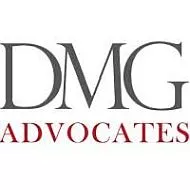On May 29, 2025, the Supreme Court of Canada dismissed the application for leave to appeal from the judgment of the Federal Court of Appeal ("FCA") in Power Workers' Union v. Canada (Attorney General), 2024 FCA 182, which upheld the constitutionality of mandatory drug and alcohol testing requirements for nuclear workers in safety-critical positions.
Background
In 2020, the Canadian Nuclear Safety Commission ("CNSC") adopted a regulatory document (the "RegDoc") which, among other things, required high security nuclear facilities in Canada to implement pre-placement and random drug (urine, oral fluid) and alcohol (breathalyzer) testing for employees in safety-critical positions (the "Testing Provisions"). Six employees and their unions challenged the Testing Provisions in the RegDoc, arguing, among other things, that they infringed sections 7 (right to life, liberty and security of the person), 8 (protection against unreasonable search and seizure), and 15(1) (right to equality) of the Canadian Charter of Rights and Freedoms. The Applicants also sought, and obtained, an injunction staying the implementation of the testing provisions pending a final determination of the Application.
The Federal Court, Federal Court of Appeal Uphold the Testing Provisions
In 2023, Justice Diner of the Federal Court of Canada dismissed the Application in Power Workers' Union v. Canada (Attorney General), 2023 FC 793. Focusing primarily on the section 8 argument, Justice Diner concluded that the Testing Provisions did not infringe an employee's right to be free from unreasonable search or seizure, given the diminished expectation of privacy of employees in a highly regulated workplace, the importance of and public interest in safety, and the reliability of the testing methodology. The Court further held that the CNSC's decision to require pre-placement and random testing as a licensing condition was "reasonable, intelligible and justified."
In November 2024, the Federal Court of Appeal (Justice LeBlanc, with Chief Justice de Montigny, Justice Boivin, concurring), unanimously upheld Justice Diner's decision on all fronts. At the heart of the FCA's ruling was its finding that requiring pre-placement and random drug and alcohol testing of employees in safety-critical positions was constitutional.
While the FCA accepted that the taking of bodily samples, whether it be breath, saliva, or urine, amounted to a seizure within the meaning of section 8, the Court, applying a contextual and flexible Charter analysis, held that the Testing Provisions did not interfere with the reasonable expectation of privacy of safety-critical nuclear employees, and that the Testing Provisions were reasonable.
First, the FCA held that workers occupying safety-critical positions in the nuclear industry had a diminished reasonable expectation of privacy. In doing so, the FCA rejected the Applicants' argument that the taking of bodily samples automatically attracts a high expectation of privacy, as can often be the case in the criminal context. Rather, the FCA agreed with Justice Diner that the seizure of urine, saliva, and breath samples for drug and alcohol testing is relatively non-intrusive and may only attract a diminished expectation of privacy.
Moreover, the context of the workplace – being the highly regulated nuclear industry in Canada – and the need to reduce safety and security risks in that industry, supported the finding that safety-critical workers had a diminished expectation of privacy over their bodily fluids. Essentially, taking a proactive, "safety first" approach, was reasonable in this context.
Second, the FCA upheld the Testing Provisions as reasonable on the basis that they were authorized by law, the law itself was reasonable, and the seizures were carried out in a reasonable manner. In reaching this conclusion, the FCA affirmed that broad grants of regulatory power given to public sector agencies to carry out their statutory mandates – including, for example, protecting health and safety – can satisfy the "authorized by law" requirement. Additionally, "reasonable grounds" or "reasonable suspicion" are not required for a search to be reasonable in a highly regulated workplace context where there is a compelling purpose (such as filling a gap in an existing workplace safety policy), the testing mechanisms employed are reasonable, and judicial oversight is available.
Ultimately, in this highly regulated workplace context, and given the safety-critical nature of their work, the interest of employees being left alone by government did not outweigh the objective of ensuring health and safety of nuclear workers and members of the public.
With respect to section 7 of the Charter, like Justice Diner, the FCA held that the non-invasive nature of the urinalysis, breathalyzer, and oral swab testing authorized by the RegDoc did not rise to the level of "serious and profound state-imposed psychological stress" that would engage security of the person. In addition, the FCA confirmed that section 7 does not protect the choice to work in a particular job, nor does it protect property or predominantly economic interests, such as the right to work in a particular profession.
The FCA also made relatively short work of the Applicants' challenge to the Testing Provisions under section 15(1) of the Charter, which protects an individual's right to equal protection and benefit of the law without discrimination based on certain grounds, including (among other enumerated grounds) mental or physical disability. The FCA held that distinguishing between categories of workers as safety-critical or not did not constitute a ground of discrimination for the purposes of section 15(1). Finally, the Testing Provisions were not discriminatory on the basis of disability, being drug dependency, as they were not arbitrary, prejudicial or stereotyping.
Implications
This is the first time the SCC has weighed in on random testing in the employment context since its 2013 decision in Communications, Energy and Paperworkers Union of Canada, Local 30 v. Irving Pulp and Paper, Ltd., 2013 SCC 34, wherein the SCC established the balancing test for assessing the legality of random drug and alcohol testing in unionized workplaces. Irving did not, however, address the constitutionality of such testing programs, which is a relevant consideration for government employers.
To that end, in refusing leave to appeal, the SCC has provided some certainty that random testing policies can pass Charter scrutiny in highly regulated, safety-sensitive workplaces. In any industry, context will be critical in assessing whether random drug and alcohol testing is reasonable and proportional in the circumstances.
Finally, as the RegDoc had been stayed pending appeal, it will be important to watch how the implementation of the Testing Provisions in nuclear facility workplaces plays out, and what impact this decision will have on other government employers seeking to implement random testing in a safety-sensitive workplace. In the meantime, the SCC's refusal to hear the appeal from the FCA's decision provides some comfort to employers looking to implement random drug and alcohol testing programs targeted at ensuring employee and public safety.
The content of this article is intended to provide a general guide to the subject matter. Specialist advice should be sought about your specific circumstances.



